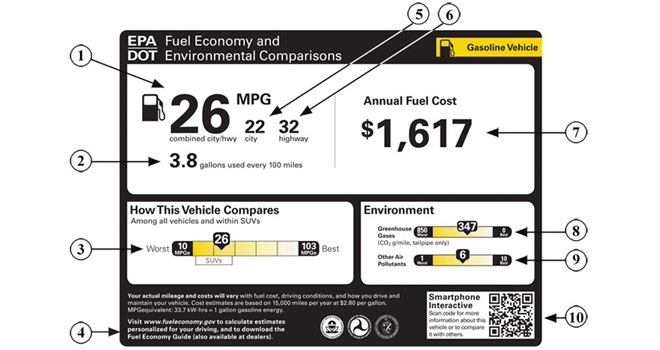As expected, President Obama on Friday unveiled an agreement with the auto industry that establishes a new fuel economy standard that requires fleets to average 54.5 miles per gallon by 2025.
“This agreement on fuel standards represents the single most important step we’ve ever taken as a nation to reduce our dependence on foreign oil,” Obama said Friday morning at a White House event.
The administration emphasized how much gas money Americans are expected to save with this new standard in place, and downplayed the projected impact on the sticker price of cars down the line.
“Together, they will save American families $1.7 trillion dollars in fuel costs, and by 2025 result in an average fuel savings of over $8,000 per vehicle,” read a Friday statement issued by the Environmental Protection Agency.
Nevertheless, the National Highway Travel and Safety Administration expects the program to increase the price of an average vehicle by at least $2,100, according to Time.
The Obama administration said Friday that the new standard will dramatically cut the amount of oil that the U.S. has to import — halving daily imports — as well as cut billions of metric tons of greenhouse gas emissions.
To get there, the administration admitted that the auto industry would have to deploy new technologies that spur “game changing” performance improvements. To encourage that, the EPA said that it is considering incentive programs for the production of electric cars, plug-in hybrid vehicles and fuel cell vehicles.
Meanwhile, CNET reports that automakers are going to turn to emerging engine technologies such as microhybrid cars instead of electric cars to meet the new U.S. fuel efficiency goal.
The agreement is backed by most of the major car companies including General Motors, Ford, Toyota, Chrysler, Honda and Hyundai.
Volkswagen however, said Friday that it does not support the agreement because its focus is on improvements to passenger cars and not large trucks, and would effectively encourage a consumer shift to larger, more inefficient vehicles.









